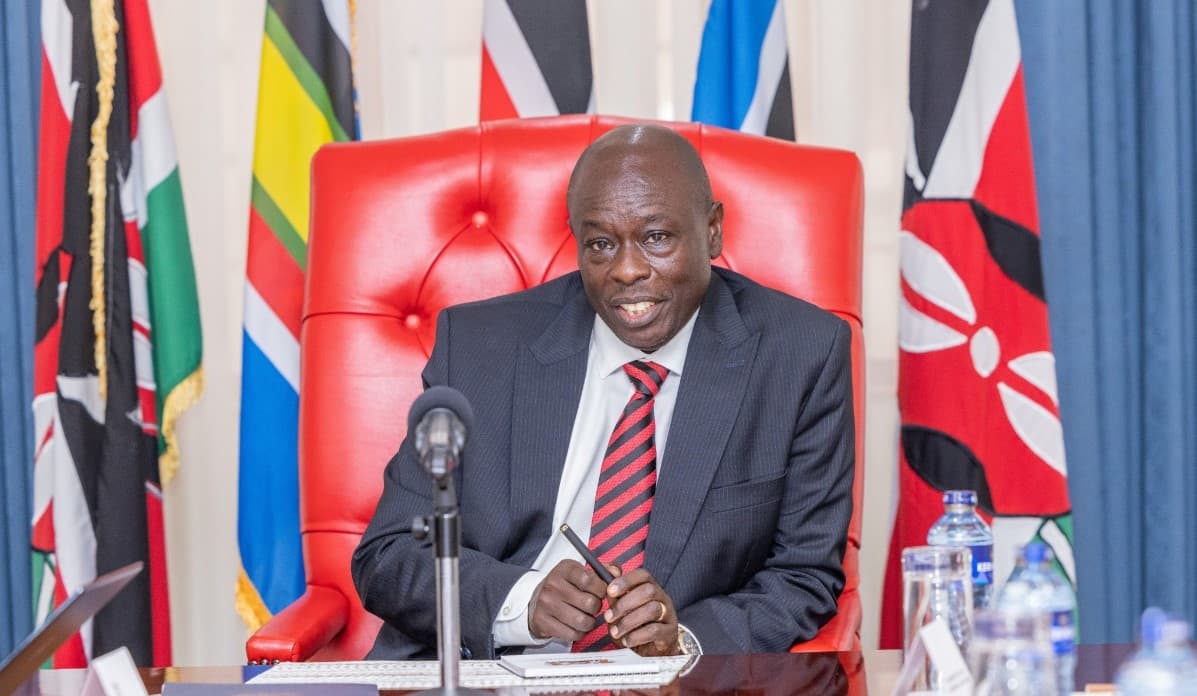We're loading the full news article for you. This includes the article content, images, author information, and related articles.
Democracy for Citizens Party (DCP) leader Rigathi Gachagua has publicly affirmed his significant contribution to former President Uhuru Kenyatta's rise to power, shedding light on their strategic political journey.

Nairobi, Kenya – Democracy for Citizens Party (DCP) leader Rigathi Gachagua has openly discussed his instrumental role in the political ascent of former President Uhuru Kenyatta. Speaking in an exclusive interview with a local television station on Sunday, October 5, 2025, Gachagua described his tenure as Kenyatta's personal assistant as one of his most fulfilling political experiences.
Gachagua served as Uhuru Kenyatta's personal assistant from 2001 to 2006, primarily focusing on politics and mobilisation. He revealed that Kenyatta's initial presidential bid in 2002, though unsuccessful, was a deliberate strategic move to establish his political foundation for future leadership.
Uhuru Kenyatta first ran for president in the December 2002 general election as the Kenya African National Union (KANU) candidate, following an endorsement from then-President Daniel arap Moi. He lost to opposition candidate Mwai Kibaki, securing 31 percent of the vote, and subsequently became the Leader of the Official Opposition in Parliament.
Gachagua's account highlights a long-term political strategy that began well before Kenyatta's eventual victory. He stated, "During his first bid in 2002, we knew he wouldn't win; it was just a strategy to anchor him for greater things later." This early positioning, according to Gachagua, was crucial in laying the groundwork for Kenyatta's successful presidential campaigns in 2013 and 2017.
Gachagua's work with Kenyatta spanned a critical period, during which Kenyatta also served as Minister for Local Government under President Moi. The former personal assistant expressed pride in his contribution, noting, "It is a journey I am proud of, part of my resume of making presidents. We pushed on, and he became president for 10 years. I am happy for the role I played in assisting him to become the next president."
He further described Kenyatta as "a good boss to work for, self-driven, hard-working, listening," and that their collaboration "paid off." Gachagua also addressed perceptions of a rift between them, clarifying that political competition should not be mistaken for personal animosity. He likened their political exchanges during campaigns to a strategic game, stating, "Campaigns have no rules. Campaigning is not a church affair, and nothing said was personal."
Gachagua's statements could reignite public debate about the intricate political manoeuvres that shape presidential campaigns in Kenya. Such revelations from key political figures often influence public perception of past administrations and could set a precedent for how political alliances and strategies are discussed in the future. The emphasis on long-term strategic planning in politics may also encourage closer scrutiny of current political formations and their underlying objectives.
Observers will be keen to see if Gachagua's remarks elicit a response from former President Kenyatta or his allies, potentially offering further insights into the dynamics of their past working relationship. The interview's timing, ahead of future political realignments, could also signal Gachagua's strategic positioning within the current political landscape.
Keep the conversation in one place—threads here stay linked to the story and in the forums.
Sign in to start a discussion
Start a conversation about this story and keep it linked here.
Other hot threads
E-sports and Gaming Community in Kenya
Active 9 months ago
The Role of Technology in Modern Agriculture (AgriTech)
Active 9 months ago
Popular Recreational Activities Across Counties
Active 9 months ago
Investing in Youth Sports Development Programs
Active 9 months ago
Key figures and persons of interest featured in this article